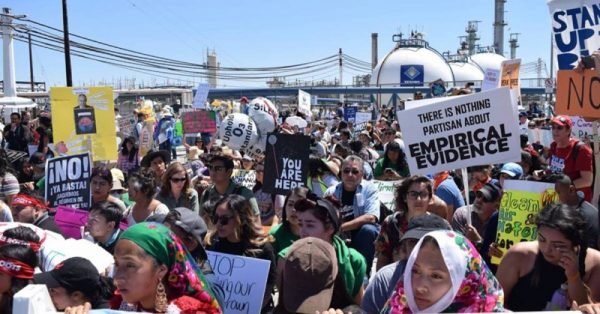Refineries
Petroleum refineries are inherently dangerous operations and significant sources of pollution that put nearby community members at risk. Refineries engage in a range of processes that result in the release of pollutants, such as particulate matter and nitrogen oxide, which contributes to ground-level ozone formation. Exposure to ground-level ozone can result in asthma attacks, decreased lung function, irregular heartbeat, and increased mortality. Petroleum refineries also regularly release known toxic air contaminants and hazardous volatile organic compounds (VOCs). Additionally, incidents at these refineries – including explosions, fires, and flaring events – further threaten nearby community members and first responders. These refineries are primarily located in low-income communities and communities of color that are already overburdened with toxic emissions. Many of the refineries are located in close proximity to residential neighborhoods and schools. For instance, there are nine schools located within a one-mile radius of the Paramount Refinery.
Phillips 66 Wilmington. Credit: Hannah Benet.
AQMD must effectively regulate these facilities to protect community members. Communities for a Better Environment (CBE) works to build people’s power in communities of color and low-income communities to achieve environmental health and justice by preventing and reducing pollution and building green, healthy and sustainable communities and environments. CBE is working to hold refineries accountable and minimize the harm from these facilities. Find out more about CBE’s work on their website.
People's Climate March Los Angeles: CBE Members & Thousands March in Wilmington to Resist Tesoro Refinery Expansion (2017).

